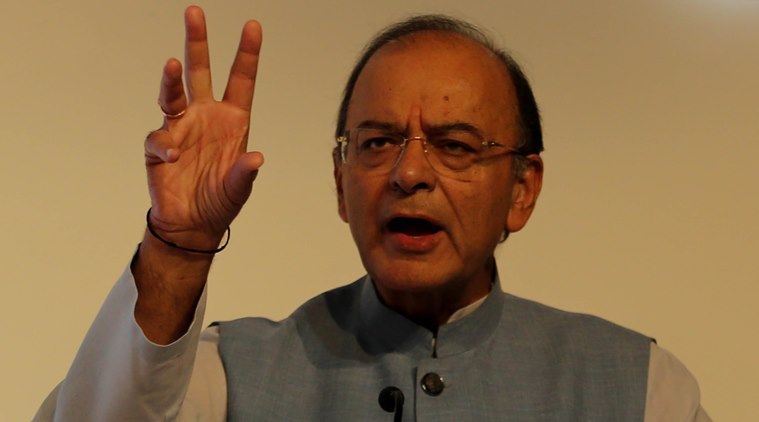 According to Jaitley, the Constitution envisages an important role for the Executive and the court had started diluting its role in judicial appointments. (File photo)
According to Jaitley, the Constitution envisages an important role for the Executive and the court had started diluting its role in judicial appointments. (File photo)
Union Minister Arun Jaitley on Sunday slammed the Congress for creating a furore over the government’s decision to return the Supreme Court collegium’s recommendation to elevate Uttarakhand High Court Chief Justice K M Joseph to the apex court for reconsideration. He reminded the Opposition party of instances when judges were superseded by political leadership in the past, especially during the previous Congress regimes.
In a blog post, Jaitley wrote, “The hue and cry made by my friends in the Congress Party recently when the Government referred a case back for reconsideration fades into the oblivion…It is part of the much diluted role of an elected Government that relevant inputs be brought to the notice of the collegium. This is in consonance with democratic accountability. All must know this important chapter of history.”
The Opposition led by the Congress had attacked the government after the latter returned the collegium’s recommendation for elevation of Justice Joseph. The collegium has in-principle decided to resend his name to the government, but it is yet to send it.
According to Jaitley, the Constitution envisages an important role for the Executive and the court had started diluting its role in judicial appointments.
Citing instances where judges of the Supreme Court were superseded and how recommendations of the apex court were turned down, he said: “I have written this blog so that my friends in the Congress party get an opportunity to look at the mirror.”
Jaitley referred to the era of former Prime Minister Indira Gandhi and said, “Chief Justice Hidayatullah recommended the names of Justice S.P. Kotwal, the Chief Justice of Bombay; Justice M.S.Menon, Chief Justice of Kerala to the Supreme Court. The executive did not respond to either of the two names and ignored the recommendations. The Chief Justice meekly submitted and never questioned the inaction…An important turn in the judicial appointments history was the decision of the Prime Minister to appoint ideologically committed Law Ministers so that judicial appointments could be influenced by the social and political philosophy of the judge,” he said.